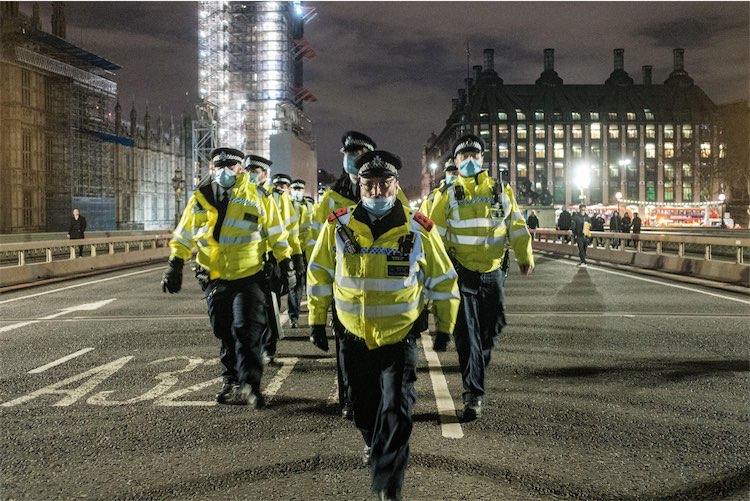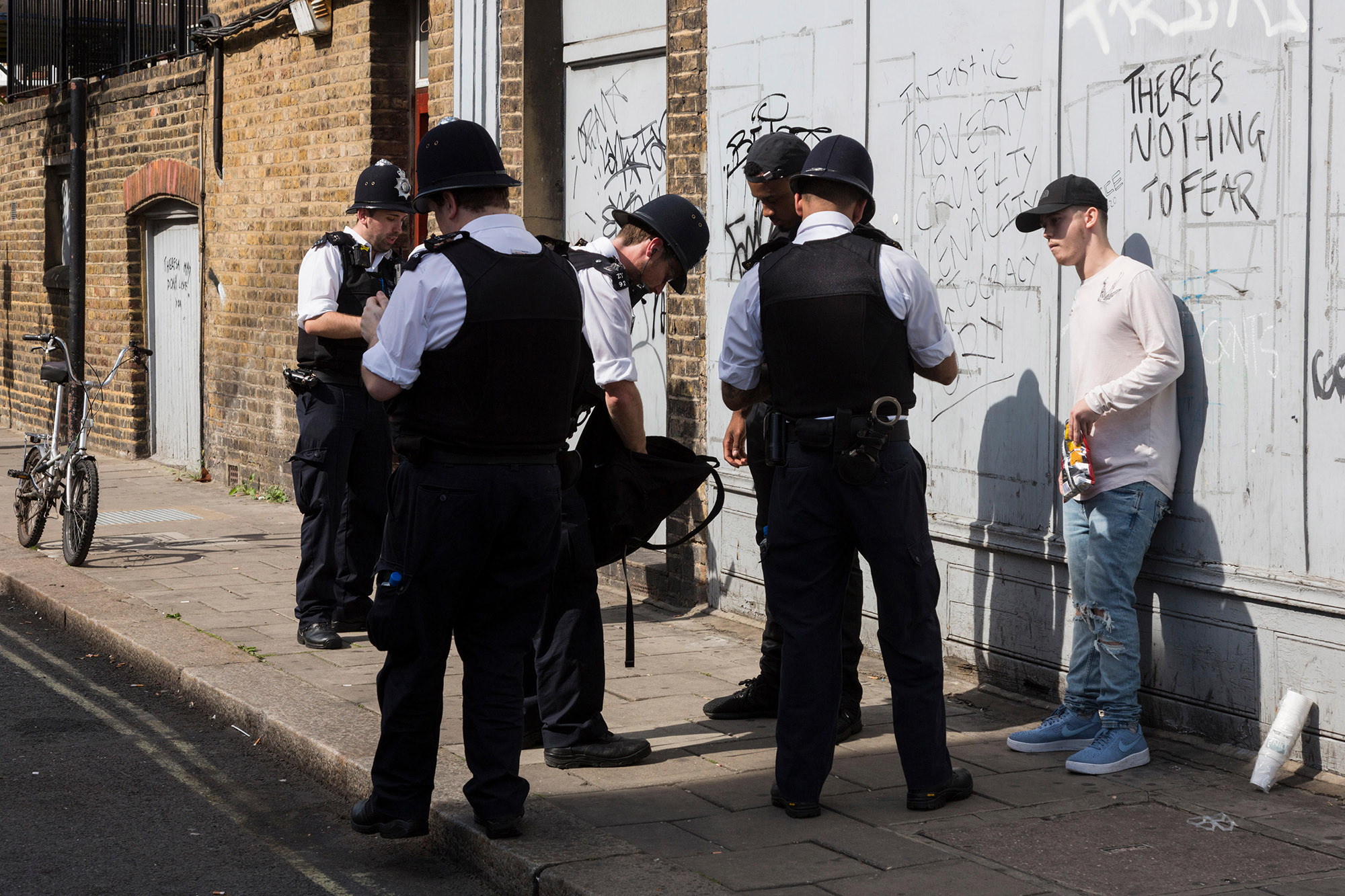Everything The Commission On Race And Ethnic Disparities Recommends To Improve Inequality In The UK
The report makes a number of recommendations but has been criticised for its conclusions about racism in the UK (Alamy)
7 min read
The controversial report by the the Commission on Race and Ethnic Disparities has made a wide-ranging set of recommendations on how to “improve the lives and experiences of individuals and communities across the UK”.
They are split up according to four overarching aims, and cover policing, health, education and employment, as well as the language used to discuss such issues.
The aims laid out in the 258-page report, published today, are: “To build trust between different communities and the institutions that serve them, to promote greater fairness to improve opportunities and outcomes for individuals and communities, to create agency so individuals can take greater control of the decisions that impact their lives, and to achieve genuine inclusivity to ensure all groups feel a part of UK society.”
On building trust the report's authors say more must be done to “challenge racist and discriminatory actions”, and call on the Equality and Human Rights Commission to receive “additional, ring-fenced funding from the government to use their compliance, enforcement and litigation powers to challenge policies or practices that either cause significant and unjust racial disadvantage, or arise from racial discrimination”.
They also say the government “should consider the complex issue of online abuse, and the platforms that are used to perpetuate such, as a public policy priority”, but do not give specific actions ministers should take.
To improve the transparency and use of artificial intelligence they support the recommendations of the Centre for Data Ethics and Innovation to “place a mandatory transparency obligation on all public sector organisations applying algorithms that have an impact on significant decisions affecting individuals”.
There are a number of suggested reforms on ‘stop and search’, with police bodies asked to develop a framework for community groups to scrutinise the practise, as well as publishing more granular data and the ability to hold police services to account.
The safeguarding groups should get an annual response from the Chief Constable and Police and Crime Commissioner to update on progress with stop and search, with forces required to demonstrate how they have responded and implemented the required changes.
The Home Office should also help identify the areas where trust in police is low and set targets to close the confidence gap.

The College of Policing should also work with commissioners and police chiefs to “develop a strategy to improve the efficacy and implementation of stop and search", with de-escalation training required for all new police officers.
There are further recommendations later in the report on “increasing the legitimacy and accountability of stop and search through body-worn video”, saying officers must provide a written explanation as to why their camera was not switched on if footage of an encounter is not recorded.
Footage of stop and search procedures should also be scrutinised by the community safeguarding trust groups, and police services must perform internal performance reviews, with feedback given to the officers involved and where needed further training given or misconduct proceedings initiated.
On the aim of promoting fairness the report calls for the government to “deploy additional funding to systematically target the entrenched and persistent disparities in education outcomes between disadvantaged pupils and their peers”.
“It is right that in delivering this funding, the DfE should adopt a more holistic definition of need as well as consider ethnic, gender and socio-economic status," the report reads.
“It is imperative for the funding to consider geographical variations, identifying disparities by regions or local areas including drilling down to individual school level where necessary.
“DfE should seek to avoid viewing disparities using national data which do not identify geographical variation in the performance of particular groups.
“For example, funding allocation should consider how to best meet the needs of specific ethnic groups from low socio-economic status backgrounds who are scoring substantially below the average for all students including White British, Black Caribbean, and Mixed White and Black Caribbean.”

The commission calls on organisations to ditch unconscious bias training in order to advance fairness in the workplace, and instead invest in sponsorship to “ensure wider exposure of ethnic minority individuals to their peers, managers and other decision makers”, as well skills support ‘which could disproportionately benefit more disadvantaged groups”.
Companies that choose to publish their ethnicity pay figures "should also publish a diagnosis and action plan to lay out the reasons for and the strategy to improve any disparities”.
The government should also establish a new office to properly target health disparities in the UK, working independently alongside the NHS, and as most causes of health inequalities are not due to differences in healthcare, it needs to work across multiple government departments.
The disproportionate number of ethnic minority young people going into the criminal justice system as a result of low-level Class B drug possession also needs addressing, the Commission says.
It stops short of advocating or endorsing the legalisation of these substances, but points to schemes from Thames Valley and West Midlands Police which stops people getting a criminal record and uses public health solutions instead, saying this could be piloted in the police force areas where most of these arrests take place, including the Metropolitan Police in London.
On education the commission recommends extending the school day, firstly in the most disadvantaged areas, with the extra hours used “to provide all pupils with the opportunity to engage in physical and cultural activities, including working with local activity clubs”.
It calls on the DfE to secure funding to make this a permanent change, but calls for more work to be done on how this would impact teachers, parents and pupils.
There are a number of other recommendations on schools and learning in the section on “creating agency”, including creating better careers advice is needed for young people from disadvantaged backgrounds.

The government should also create a “highly-targeted apprenticeships campaign” focused on young people who currently face discrimination and cannot access the full range of career pathways.
HSBC should also collaborate with universities to pilot a “competitive enterprise programme that will target aspiring entrepreneurs from under-represented and low-income backgrounds”.
The Youth Justice Board is called on to develop a "digital solution that can be accessed and used by children and young people before or at the point of crisis”.
Funding from government must be given to create a phone app, text line or chatbot to signpost and refer those at risk of or already experiencing criminal exploitation to organisations who can support them.
In order to achieve greater inclusivity, the commission recommends creating a new curriculum “to tell the multiple, nuanced stories of the contributions made by different groups that have made this country the one it is today”.

It says more must be done to create police workforces “that represent the communities they serve” by addressing the pipeline of candidates applying “through extensive engagement and outreach with communities” including through cadet programmes.
Forces should also be equipped “with skills to serve the needs of their local communities” such as specific recruitment pilots to try and get officers with life skills which match the needs of their area.
And finally it suggests moving away from the use of the term BAME "to better focus on understanding disparities and outcomes for specific ethnic groups”.
But several of the other recommendations call on the government to undertake further reviews and research, rather than putting forward particular solutions.
There is a call to review the Care Quality Commission’s inspection process and its “approach to scoring employee diversity and inclusion”.
DfE is called to invest in “meaningful and substantial research” on what drives the high performance of pupils from certain backgrounds.
The Commission also calls on the government to work with a panel of academics and practitioners to "develop resources and evidence-based approaches of what does work to advance fairness in the workplace”, as well as a “support for families review”.
NHS England is urged to “commission a strategic review of the causes of disparate pay and, where discrimination is pinpointed, spell out the measures that might meaningfully address it”.
